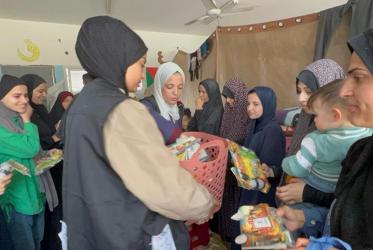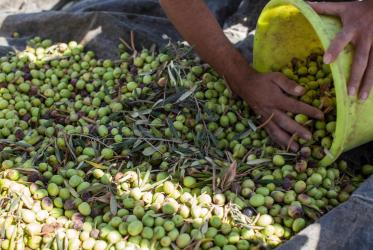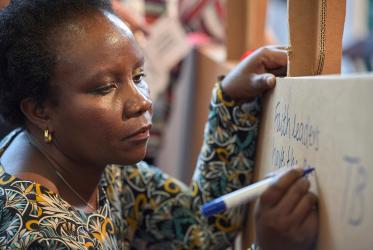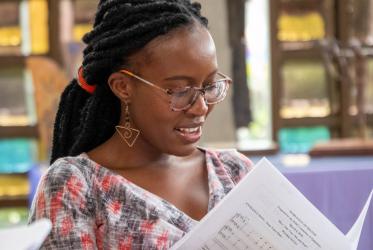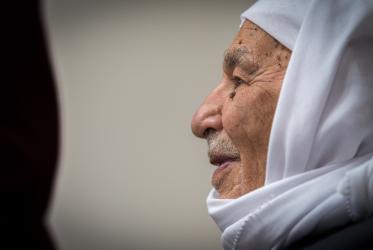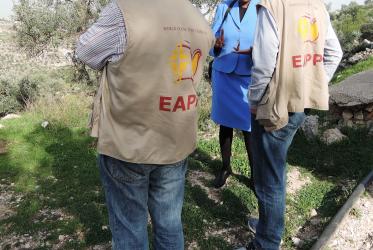Displaying 1 - 18 of 18
28 March 2024
Displaced people south of Gaza face extreme difficulty
21 December 2023
Pandemic and pedagogy: what are the valuable lessons?
21 December 2022
Dr Saïd Ailabouni: God is on the side of rejected, oppressed, occupied
12 September 2019
WCC regrets USA withdrawal from UN relief for Palestinian refugees
03 September 2018
When you have nothing, you give your heart
09 May 2018
Applications open for WCC Eco-School
10 May 2017
WCC conference explores ecological injustice in Uganda
21 April 2016
A presence to accompany vulnerable communities
31 March 2015

